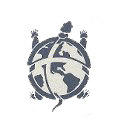|
Sachem's Stories
A collection of stories passed from my Elders to me.
The Emperor Moth Strength comes through struggle
A man found
the cocoon of an Emperor moth and took
it
National Park Service seeks tribal input By Della Klemovich
The
National Park Service has pledged to work with
Burial sites an issue The tribal
representatives are part of an alliance
New policy praised One of the
saddest things, said Sam Sapiel,
by Leonard Arel
What they found was an easy target, Native Country. The Europeans came over in their real big funny looking canoes with no paddles, across the Great Waters on the East where Mother Earth meets Father Sky.
This war started when the Red-man ran to the shores to meet their new guest with open arms and a friendly smile. The new Guests floated into the shores with their hands around guns, canons and long knives. This war came on my Ancestors so fast, that many of my relations today still have no idea this war is still on going to this day.
I received an e-mail from someone the other day. She asked if I donated goods and funds to help all the countries down in South and Central America, Honduras in particular. I told her that I did. We gave until it hurt and then gave some more. I asked her if she donates goods and funds to all the countries up in North America? She said, " What do you mean all the countries up in North America? "
I reminded her that, before this was America, this was Native Country! I can name 15 to 20 countries, within this country, without looking real hard. Most, if not all, are very very poor. They are poor because, we, in this free country the United States of America tell them that, we do not recognize them. Therefore they do
not exist.
So why do we have to take care of them? On the other hand, if we do have to admit that they do exist, we must admit we took everything from them and need to pay for it, at whatever price they so choose, or, give it back.
By now you must see that this war can never be over, until we complete
the genocide!
The Grandmother Elders by Ruth E. Sweet aka Magnolia Blossom
Grandmother Elder is old and set in her ways. Grandmother Elder is stubborn and has seen better days. Grandmother Elder has learned her ways through the years, that many of the
children will shed many tears. The young ones of today like to call us Grandmother Elders with much wisdom. But when we try to show the way, " Oh Grandmother go away, this is another day, your in our way." The word Grandmother Elder is just another word, it should show respect, oh well, what the heck! Its not time for us to be heard, the young ones say. We've better
ideas, so it is as I feared. Go away Grandmother Elder, we will show you the way. Grandmother Elder knows how to make things do. We all know what we've been through. Sixty plus years of gathering knowledge, standing firm and always ready to give a hug, A gift to someone who really needs a tug. Cooking without recipes, sewing without patterns, Tolerating many a
difficult situation. We've lived many years in this Nation. I am still balking---slow in walking. But this Grandmother is still talking. Maybe you're waiting for your turn to get the title of "GRANDMOTHER ELDER". May 1997 resgrandm
Can a woman run a Native Tribe? (from a news article, author unknown)
Cherokee leader extols Native American tribes' sense of community while many Americans move toward isolation and separation Indian tribes continue to share a sense of community, author and former Cherokee Nation Chief, Wilma Mankiller.
Mankiller read from her works and spoke to the more than 200 people who attended a program, of the sense of community she says remains strong among the tribes. " The most common attributes among tribes across the country is the same sense of tribe, community and interdependence," she said. "More and more, people are isolating themselves from one another and that's not happening in our community."
The recipient of the Presidential Medal of Freedom, Mankiller spoke of the importance of finding an identity and learning from the past. " The most important battle is that we don't loose a sense of who we are," she said. " We must always pay tribute to our elders."
Mankiller is responsible for the recruitment of young Indians for university training in environmental science. She continues to commit herself to community development and has designed building projects for tribes across the country. During her tenure as Chief, the Cherokee tribal membership tripled and the nation's budget doubled.
She authored " Mankiller: A Chief and Her People," which includes the story of the Cherokee. AHO Chief Wilma Mankiller
You may contact Sachem Walkingfox at:
My other web sites are at:
Last edited February 22, 2009 Inquisitive minds 6985 since July 1999 Copyright © 1999 - 2009 Sachem-Uncas.com All rights reserved. |


